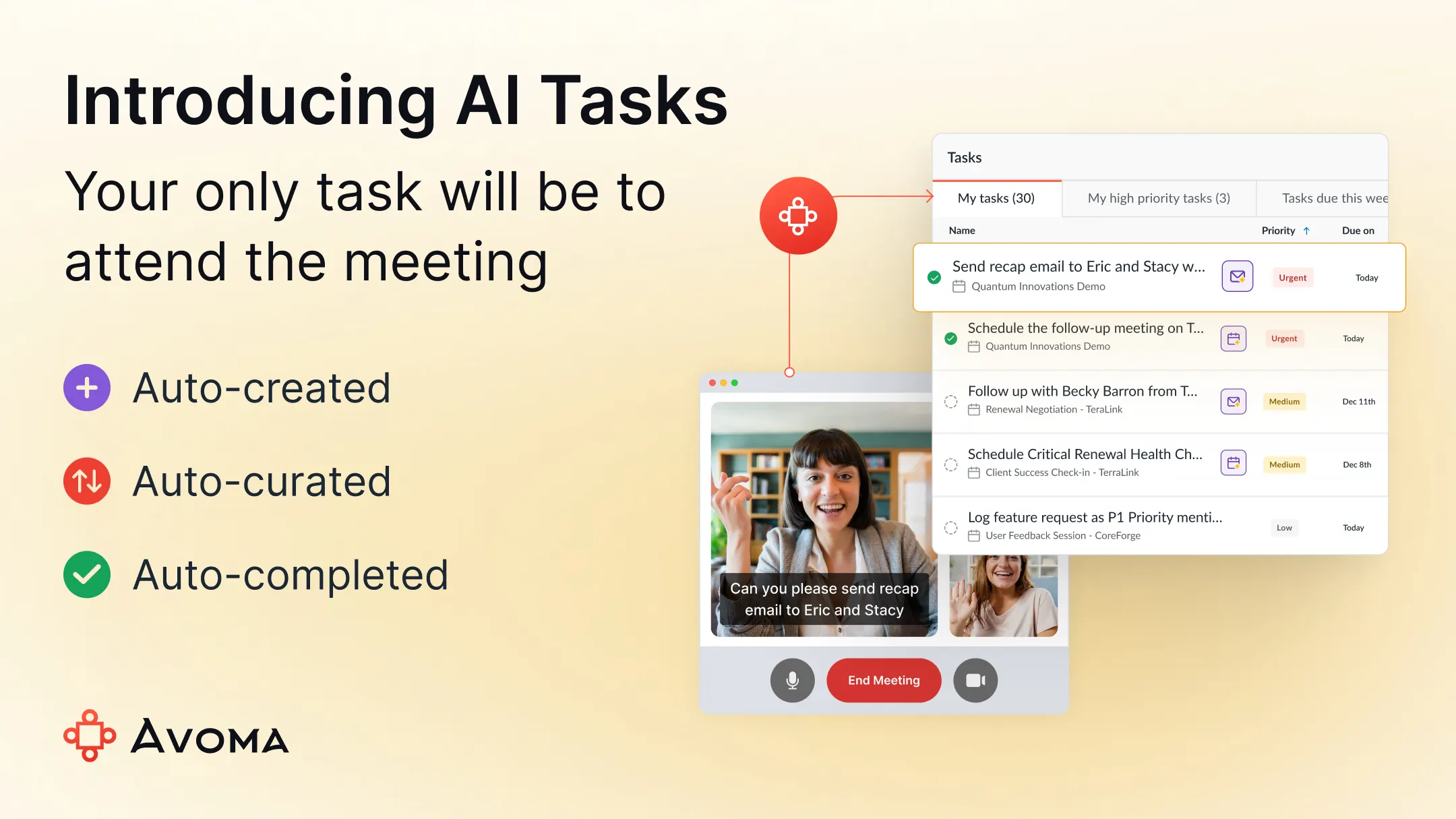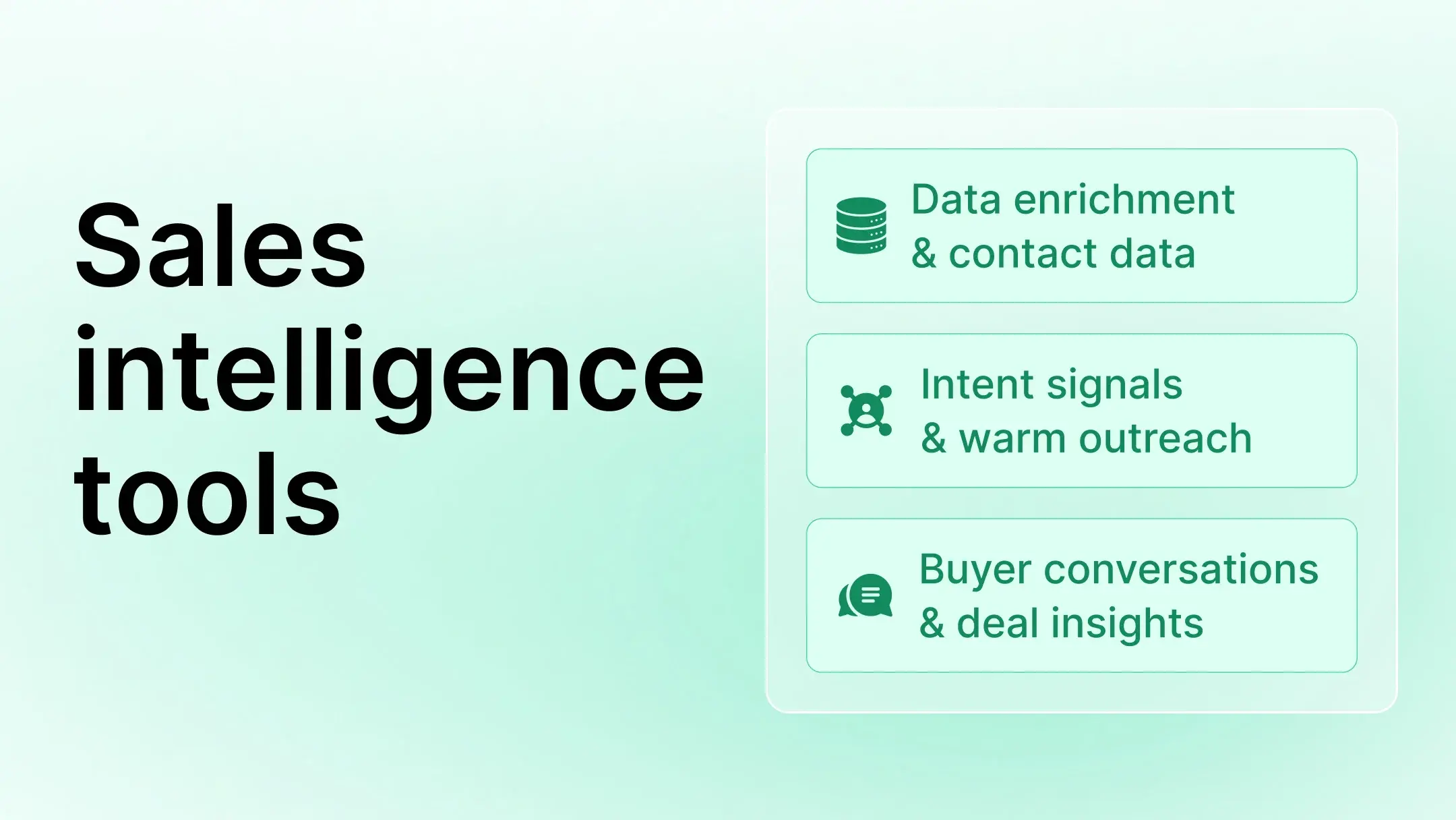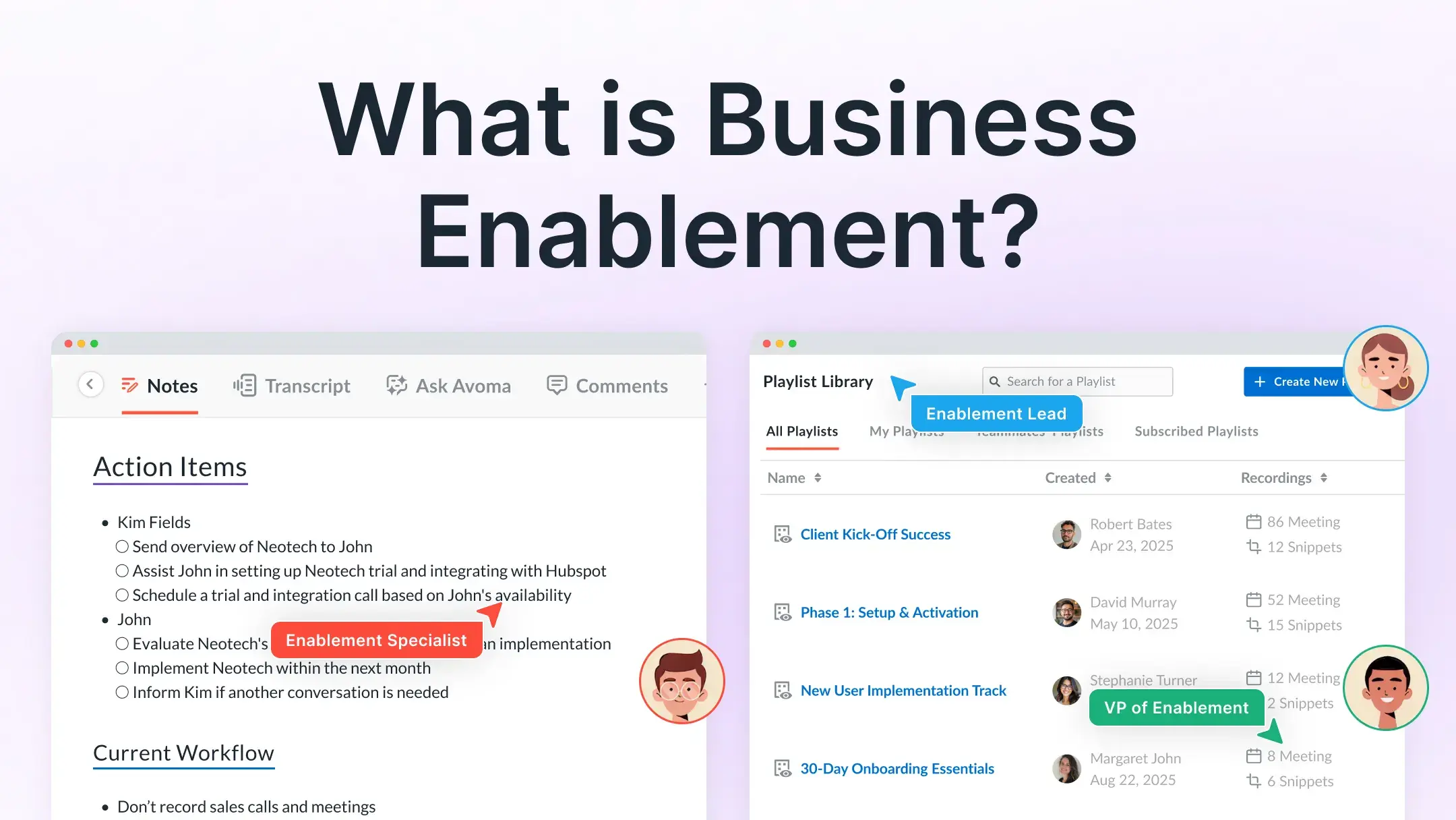What is AI sales coaching? Benefits, use cases, and real-world impact
Table of Contents:

What if you could coach every sales call instantly, objectively, and at scale?
With AI sales coaching, that’s no longer a pipe dream. It automatically transcribes, analyzes, and scores 100% of your team’s conversations, surfacing personalized feedback for every rep in real time.That means faster ramp time, sharper objection handling, and higher win rates without adding more to your plate.
In this article, we’ll break down how AI sales coaching turns your call recordings into a continuous learning engine and helps your team perform at their absolute best.
What is AI sales coaching?
Using AI for sales coaching is like having a coach that listens to every one of your sales calls, spots the missed opportunities, and delivers bite‑sized, data‑driven tips before your next meeting.
Instead of manually sampling a handful of calls, AI sales coaching platforms automatically transcribe and analyze 100% of your conversations scoring reps on agenda‑setting, objection handling, product positioning, and more.
By turning raw call data into clear, personalized insights, AI sales coaching transforms how feedback is delivered, making it faster, fairer, and infinitely more scalable.
Why today’s reps need AI‑powered feedback
Let’s face it: you can’t improve what you don’t measure.
Yet our research shows 75% of sales leaders don’t listen to any calls even when they have the tools to do so. With reps averaging five 30‑minute demos a day, that’s 750 minutes of coaching gold left untouched.
Our research shows that 75% of sales leaders don’t even listen to sales calls—despite having the right conversation intelligence tools.
Without real-time feedback, reps repeat the same mistakes, sales managers fall back on gut feel, and skill gaps widen.
In contrast, continuous training leads to 50% higher net sales per employee
AI‑powered feedback closes that loop by surfacing strengths and blind spots immediately, so reps can course‑correct on the next call, not weeks later. Instant feedback means faster learning, shorter ramp times, and ultimately higher win rates.
AI sales coaching vs traditional coaching: What’s the difference?
Traditional coaching relies on spot checks, gut instincts, and a lucky draw of which calls get reviewed. It’s time‑consuming, inconsistent, and often biased.
These traditional sales coaching methods are being rapidly outpaced by AI solutions that offer comprehensive insights and consistent assessment framework.
First, it guarantees 100% call coverage, no more cherry‑picking.
Second, it applies objective scorecards aligned to your playbook, removing personal bias.
Third, it delivers insights in real time, so coaching becomes an ongoing dialogue instead of a monthly review.
The result? A continuous coaching loop where every rep gets the right guidance at the right moment, driving faster skill development and measurable performance gains.
Why traditional sales coaching fails and how AI bridges the gap
Most sales orgs already know there’s a gap between how reps sell and how buyers buy. But what’s often missing is a system to close that gap consistently and at scale.
Let’s break down where things typically go wrong and how AI sales coaching can flip the script.
1. Quotas are set without coaching infrastructure
Many companies are still chasing “growth at all costs” targets without building the right foundation to support it. Unrealistic quotas paired with the absence of coaching plans only lead to burnout, missed numbers, and high rep turnover.
What ends up happening?
- Reps struggle silently without knowing what to improve.
- Managers coach reactively, not proactively.
- Forecasts become fiction, not data-driven projections.
If you want reps to hit ambitious goals, you need a scalable feedback loop that shows them how to get there not just what to hit. And that’s exactly what AI coaching systems enable. By analyzing every call, surfacing common mistakes, and tracking trends, you’re no longer guessing where to intervene. You’re coaching with precision.
2. Objection handling happens too late (if at all)
Objections aren’t the enemy. They’re buying signals in disguise. But too often, reps only hear about them when it's too late in the sales process.
In fact, sales leaders say objection handling is one of the top challenges their reps face. But that’s not the real problem. The real issue? Reps aren't learning from past objections.
With AI, you get instant visibility into how objections are handled across every call, what worked, what fell flat, and where reps need coaching. It provides high-value feedback that drives action items for process improvement. It turns every objection into a coaching opportunity, not a missed one.
3. Demos aren’t aligned with buyer intent
Here’s a common scenario: A rep spends the first call only on discovery, promising a follow-up demo “next week.” But your buyer is already talking to three other vendors and two of them have already shown the product.
If your demo isn’t fast, focused, and aligned with what drives buyer engagement, you’re out of the race before it starts.
Great demos require two things:
- An understanding of the buyer’s goals
- The ability to show immediate value
AI coaching helps reps level up both. By analyzing demo conversations at scale, it highlights what top-performing sales reps do differently, how they frame the story, what value points they emphasize, and how they adapt based on the buyer’s responses. That means every rep can learn to run a sharper, more consultative demo and not just the veterans.
How AI sales coaching helps reps succeed faster
The three major gaps we covered earlier: quotas, objections, and broken demos aren’t new. And neither are the solutions. Sales leaders know the challenges. The real issue? They haven’t had a fast, scalable way to spot these gaps in real time and coach their team where it matters most.
That’s exactly where AI sales coaching comes in.
Many SaaS teams still rely on manual workflows like jotting down notes, updating spreadsheets, and randomly picking calls to review. Even those using conversation intelligence tools often struggle to translate insights into timely coaching.
Avoma flips that model on its head by using AI-powered features that deliver comprehensive insights.
Let’s see how it works.
AI listens, scores, and highlights what matters most
Avoma’s AI Coaching Assistant reviews 100% of your team’s calls and scores them based on preset evaluation criteria like how well the rep uncovered pain points, set an agenda, or handled objections. So instead of guessing which call to coach on, you get a prioritized list based on real data.
No more sifting through hours of calls. You get to focus your time where it matters: coaching for impact.

Say goodbye to bias and guesswork
AI sales coaching removes the human bias that can creep into manual reviews. You define the behaviors and criteria that matter, for example, what a great discovery call looks like and AI evaluates performance objectively.
Whether it’s setting the agenda, identifying the prospect’s goals, or surfacing competitor mentions, Avoma ensures every call is scored against what good looks like. So your feedback becomes more targeted, consistent, and actionable.
You can even use Avoma’s ready-to-go AI scorecards for SDR prospecting, sales demos, and customer success calls or create your own in minutes.

Get 100% coaching coverage without burning out
Coaching every call manually just isn’t realistic. Sales managers are stretched thin, and time is limited. That’s why AI sales coaching is a game-changer.
Avoma gives you complete visibility across all calls without you having to listen to a single one from start to finish. You get automatic summaries, performance insights, and a breakdown of where each rep is excelling or needs help.
The result? Better coaching habits, sharper skills, and up to 5 hours saved every week.

Scale your sales coaching with AI
AI sales coaching isn’t just a trend, it’s the fastest way to boost rep performance and hit quota more consistently.
With Avoma, you’ll close deals faster, address customer objections more effectively, and coach every sales rep with personalized guidance for individual performance.
Whether you’re looking to refine your sales strategy, improve your sales pipeline, or build a robust sales enablement strategy, this sales coaching tool is a game changer.
Sales enablement leaders and revenue organizations alike are turning to this sales coaching platform to gain actionable insights, maximize buyer engagement, and secure revenue growth.
Book a demo or start your free trial today to see how Avoma helps you coach smarter, not harder. Start scaling your coaching initiatives and ensuring your entire sales team performs at their absolute best.
Frequently Asked Questions






What's stopping you from turning every conversation into actionable insights?










